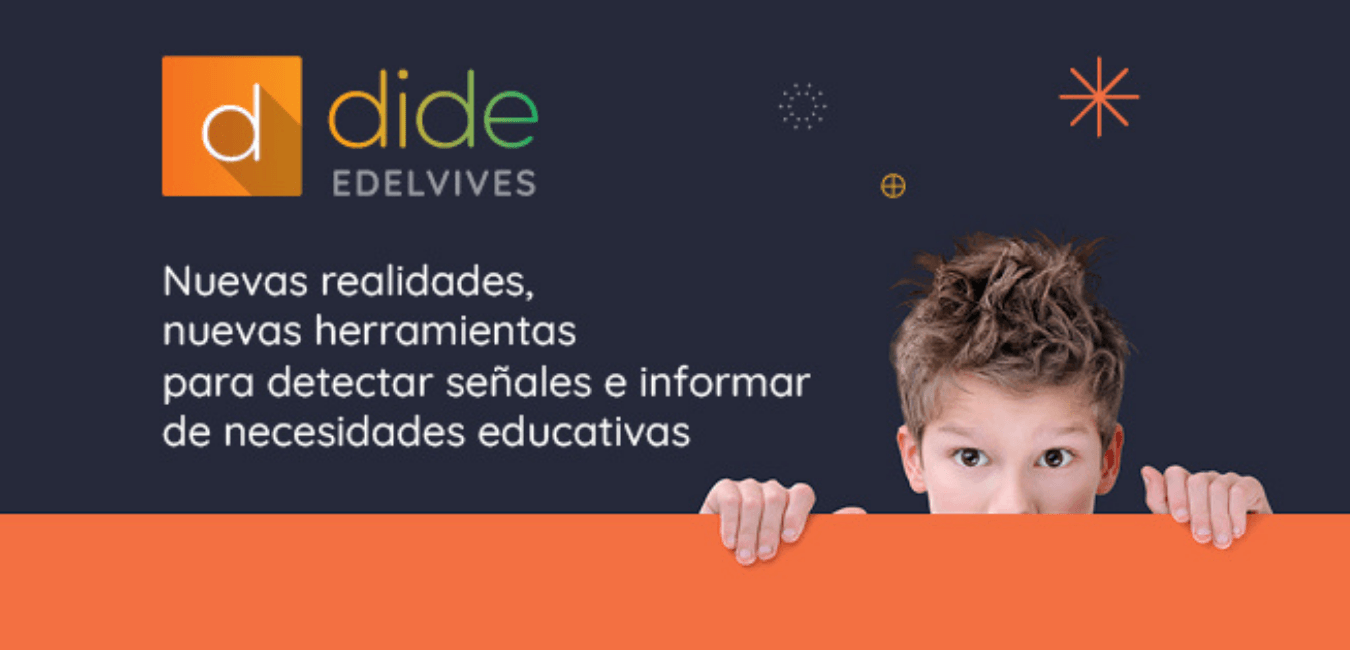Created and endorsed by psychologists and educational psychologists and based on the observation method. The only digital platform for the prevention, detection, and guidance of developmental and learning difficulties for children ages 2 to 18.
The new tool for the early detection of learning difficulties
Academic failure is not a new problem, but it is very common in our society. In fact, one-third of students leave the educational system without graduating. That's why GUIXOS AULA D'ESTUDI has partnered withVS Software Engineering Group has found the solution to these problems.
A digital methodology called DIDE has been created with the goal of preventing academic failure. A team of professionals in psychology, education, and new technologies are responsible for this project, aimed at psychoeducational professionals, teachers, and families.
The best of all? With DIDE, the participation of the minor is not necessary; he will not have to go through the boring process of tests or questionnaires - why? why are you doing this to me?– but it will be the study participants who will make observations and answer questions for him.
Through the 35 indicators that influence the learning, development, emotions, and behavior of each child between the ages of 2 and 18, DIDE will identify the child's needs and help address them with the support of psychoeducational specialists, teachers, and families.
A simple and practical method that can improve the self-esteem and future of those we love most.
Parents, teachers, schools, educational counselors, associations, etc., let's join forces, let's work together to identify these needs and ensure they stop being an obstacle to their well-being. Only then will we ensure all children have equal opportunities.
With the tools at our disposal, why wait until it's too late?
All children are different. Each has specific needs and difficulties. Sometimes they are identified late, when they have already become a problem for the student. Our goal is to prevent these difficulties and avoid academic failure.lar, understand the student better and help him/her improve in all areas.
DIDE is a digital information gathering tool that facilitates the identification of the educational needs of children aged 2 to 18 years based on the observation of their parents and teachers.

Education and learning
COn Dide we will work:
- verbal and numerical reasoning
- memory
- language acquisition
- learning to write and read
Social development
Together with:
- social communication
- empathy
- language development
- social maladjustment
Emotion and behavior
In order to address:
- low self-esteem
- attention and impulsiveness
- problematic eating behaviors
- maladaptive use of new technologies
How does DIDE work in GUIXOS?
The GUIXOS center will send you an email so we can begin gathering the necessary information to better understand our students.
All the information we gather will allow us to understand the source of the difficulties and thus be able to gradually address them with the student in our classes, but in a more personalized way.
The minor's participation will not be required at any time; they will not have to complete tests or questionnaires. Instead, the selected participants will provide the observations and answer the questions on their behalf. These participants must be people from their family (mother, father, grandparents, aunts and uncles, etc.) and educational background (teachers, tutors, educational counselors, etc.).
In this way, we prevent the student from feeling analyzed and we can help them in an indirect or non-invasive way.
A very simple and practical method that will help us improve our students' self-esteem and future.
How do I get started?
- Accept the email you will receive from the center so we can begin collecting all the necessary information.
- If you haven't received it, please fill out the registration form below.
- Once you have completed the questionnaire, please recommend more people from the student's environment who can give us more information.
- Once we've completed the corresponding reports, we'll design a specific itinerary tailored to your child.
- We will meet with you to present the reports and the educational itinerary.
LET'S START GETTING TO KNOW OUR STUDENTS BETTER








